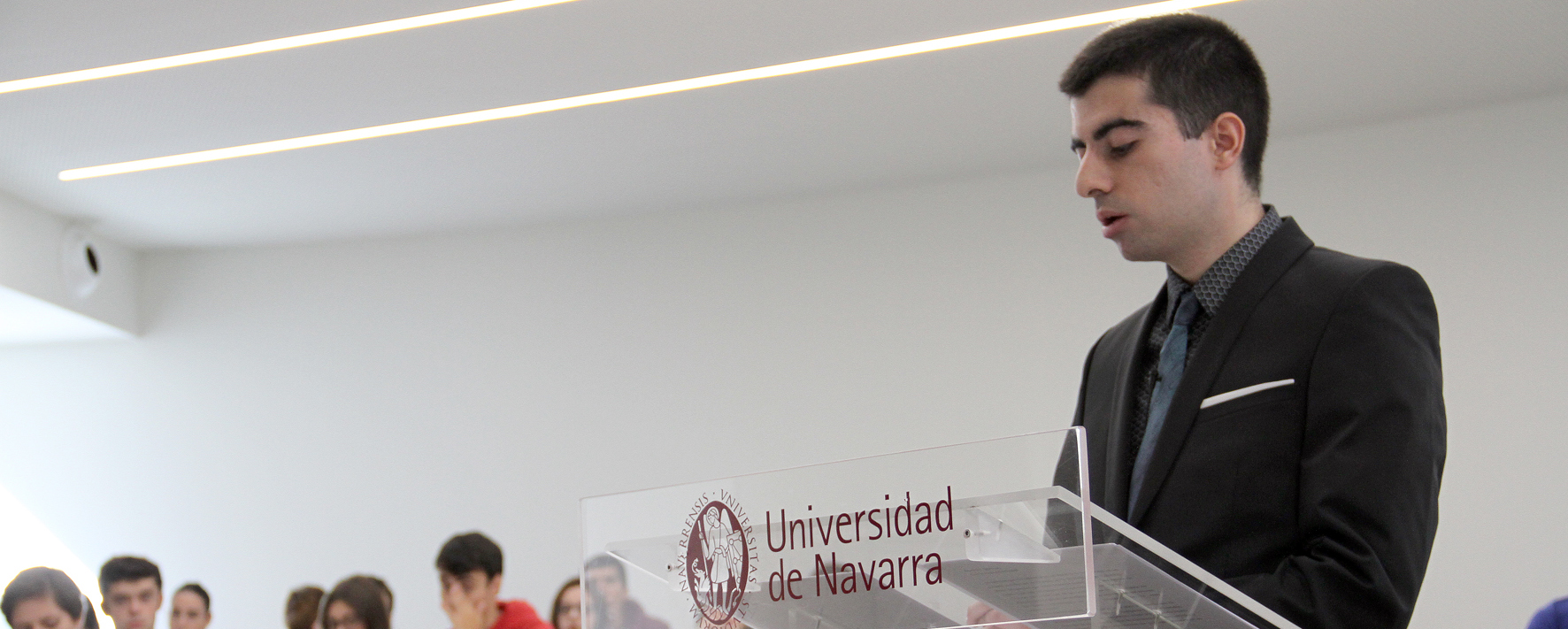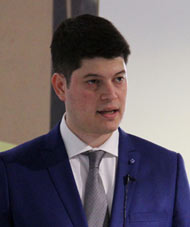Dámaso Izquierdo defends a thesis on linguistics at project 'Public discourse' of ICS
He has analyzed the scope and limits of evidentiality, a linguistic category that indicates in what way the speaker has had knowledge of the information he or she is conveying.

Dámaso Izquierdo Alegría, PhD student of the project 'Public discourse' of the Institute for Culture and Society (ICS) of the University of Navarra, defended his thesis 'Alcances y límites de la evidencialidad: aspectos teóricos y proposal de análisis aplicada a un conjunto de adverbios evidencialoides del español' (Scope and limits of evidentiality: theoretical aspects and of analysis applied to a set of Spanish evidentialoid adverbs). The research has been directed by Ramón González Ruiz, partner of project of the ICS and professor of Spanish Linguistics and language .
The new doctor has researched on evidentiality, a linguistic category that was discovered in the first half of the 20th century after the discovery of the existence of certain languages in which speakers must use a morpheme that specifies how they have had knowledge of the information they are conveying (for example, "supposedly", "apparently", "presumably"...).
The goal of work has been to present a proposal of analysis of evidentiality applied to European languages. According to the author, the concept of evidentiality "has recently been imported into the descriptive linguistics of European languages, but its introduction has been very intuitive, in such a way that it has ended up being applied to linguistic units and constructions of Spanish and other European languages that are very heterogeneous and different in comparison with the prototypical evidentials identified in other languages".
Theoretical and methodological problemsFor this reason, the author has conceived his thesis as "a necessary reaction in the midst of a context in which the notion of evidentiality is widely and imprecisely used in the descriptive linguistics of European languages and, in particular, in Hispanic linguistics".
The analysis is based on different theoretical and methodological problems regarding evidentiality that have gone unnoticed in the specialized programs of study , or that have generated an inconclusive discussion , explained Dámaso Izquierdo.
The panel that evaluated the thesis was formed by Ignacio Bosque, Full Professor of Philology at the Complutense University of Madrid and member of the Royal Spanish Academy; Bert Cornillie, professor of Spanish Linguistics at the University of Leuven (Belgium); Catalina Fuentes, professor of language Spanish at the University of Seville; Carmen Llamas Saíz, professor of Linguistics at the University of Navarra; and María Antonia Martín Zorraquino, professor of language Spanish at the University of Zaragoza.
New book published in Iberoamerica VervuertThe academic publishing house Iberoamericana Vervuert has recently published the book 'La evidencialidad en español: teoría y descripción', coordinated by Dámaso Izquierdo, Ramón González and Óscar Loureda, professor at the University of Heidelberg. It is the fourth most prestigious Spanish publishing house according to the Scholarly Publishers Indicators in Humanities and Social Sciences ranking.
The Issue includes papers by experts from Spanish universities -Vigo, Valencia, Zaragoza, Salamanca, Complutense de Madrid and Pompeu Fabra- and from abroad -the Belgian universities of Antwerp and Leuven, and the University of Buenos Aires, in Argentina-.
The work is structured in five blocks: Theoretical considerations about the notion of evidentiality and its application to Spanish; The expression of evidentiality in Spanish through adverbs and discourse particles; The expression of evidentiality in Spanish through verbs and modal adverbs; The expression of evidentiality in Spanish through verb tenses; and approach contrastive: evidentiality in Spanish and in other languages.


